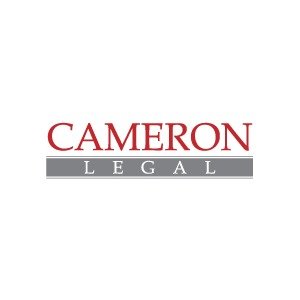Best Elder Law Lawyers in Epping
Share your needs with us, get contacted by law firms.
Free. Takes 2 min.
List of the best lawyers in Epping, Australia
About Elder Law in Epping, Australia
Elder Law in Epping, Australia, is a specialized area of legal practice focusing on the issues that concern seniors and their families. It encompasses areas such as estate planning, wills and trusts, probate, superannuation, powers of attorney, guardianship, care and accommodation, elder abuse, and health-related laws pertaining to older individuals. The purpose of Elder Law is to safeguard the rights, quality of life, and financial security of senior citizens.
Why You May Need a Lawyer
Navigating the complexities of this particular legal sector can be challenging. It is strongly recommended to seek legal assistance in situations such as drafting a will or setting up a trust, contesting a will in case of disputes, planning for retirement or estate, dealing with cases of elder abuse, or creating powers of attorney and guardianship documents. This can ensure that the rights of the elderly are properly protected and their wishes are respected.
Local Laws Overview
In Epping, the major state laws relevant to Elder Law include the Powers of Attorney Act 2003, Guardianship Act 1987, Succession Act 2006, and the Aged Care Act 1997. These frameworks cover diverse issues ranging from decision-making for individuals who lack the capacity, management of wills and estates, to regulations on care and protection for older people in aged care facilities. Take note that legislation frequently changes, and staying updated is crucial to conform with legal requirements.
Frequently Asked Questions
What is the purpose of drafting a will?
A will is critical for communicating one’s wishes regarding asset distribution after death. It helps avoid disagreements amongst family members, hence potentially reducing potential legal disputes.
What is a Power of Attorney?
A Power of Attorney is a legal document that allows a person (the principal) to appoint another person (the attorney) to make financial and legal decisions on their behalf, particularly if they become unable to do so.
What is Guardianship?
Guardianship involves the legal appointment of a person (the guardian) to make personal, medical, and lifestyle decisions for an individual who lacks the capacity to make them.
What is elder abuse and how can it be addressed?
Elder abuse is any act causing harm to an elderly person, which often takes place within trust relationships. It can involve physical, psychological, financial, or sexual abuse. Legal interventions can help to protect the rights of the victim and ensure their safety.
What is the role of a lawyer in elder law?
An elder law lawyer provides legal advice, assists in planning and drafting documents, and represents seniors in legal matters. Their goal is to protect the rights, welfare, and assets of the elderly.
Additional Resources
A good starting point for information on elder law issues would be organizations like the Legal Aid NSW and LawAccess NSW. The NSW Elder Abuse Helpline & Resource Unit can provide support for elder abuse cases. The Department of Health provides resources about aged care legalities and rights.
Next Steps
Should you feel the need for legal assistance, consider consulting with an Elder Law specialist lawyer. Ensure that they are well-versed in NSW elder law matters, have a good grasp of your specific needs, and that they can provide caring, respectful guidance to you or your loved ones. Do not hesitate to seek help as your legal rights matter.
Lawzana helps you find the best lawyers and law firms in Epping through a curated and pre-screened list of qualified legal professionals. Our platform offers rankings and detailed profiles of attorneys and law firms, allowing you to compare based on practice areas, including Elder Law, experience, and client feedback.
Each profile includes a description of the firm's areas of practice, client reviews, team members and partners, year of establishment, spoken languages, office locations, contact information, social media presence, and any published articles or resources. Most firms on our platform speak English and are experienced in both local and international legal matters.
Get a quote from top-rated law firms in Epping, Australia — quickly, securely, and without unnecessary hassle.
Disclaimer:
The information provided on this page is for general informational purposes only and does not constitute legal advice. While we strive to ensure the accuracy and relevance of the content, legal information may change over time, and interpretations of the law can vary. You should always consult with a qualified legal professional for advice specific to your situation.
We disclaim all liability for actions taken or not taken based on the content of this page. If you believe any information is incorrect or outdated, please contact us, and we will review and update it where appropriate.








